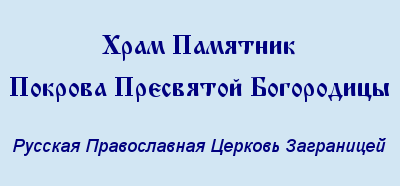Dear Brothers and Sisters,
Congratulations with the feasts of the Resurrection of the Lord and the great saint, preacher, and hierarch John Chrysostom!
For many weeks already we have talked about death and life after death. In my sermons, I have noted that it is important to pray for our deceased because our prayers can truly ease the state of the dead, if they for one reason or another did not find repose. Today let’s begin to discuss the rites and prayers which are offered to us by the Church in the event of a death, beginning with those that are appointed to be performed before death and moving on to those that are done at the moment of death, as well after it.
Let’s note that probably the main thing that a person can do to have some hope in an eternal and blessed life is to confess one’s sins before a priest, to repent of them from the heart, and to commune of the Holy Mysteries of Christ before his or her death. Of course, everyone would agree that it would be excellent to fulfill this not long before our own death. The thirteenth canon of the First Ecumenical Council emphasizes the importance of Communion before death. This canon mentions that even those who have been excommunicated for some kind of sinful actions, for example apostasy, murder, or fornication, must be communed if the danger of death is on the horizon. It is evident that Communion before death is so important that there are no reasons that could prevent this for a baptized Orthodox Christian.
The problem is that death is often unpredictable. In other situations the dying person loses his or her mind or the ability to speak or swallow, making it difficult or even impossible to confess and receive Communion in a normal manner. For these reasons it is always good to remember that our final day could dawn at any moment and therefore to always be ready. If a person regularly and in a heartfelt manner participates in the mysteries of the Church, he will never be denied a final confession and Communion. The relatives of the elderly or sick must also remember this and act accordingly.
If a person falls ill, or an operation or a difficult medical procedure is approaching and death is foreseen in the near future, naturally, one must beforehand come to church or, if this is impossible because of one’s health, call a priest to attend at home or in the hospital so as to confess and receive Communion. Throughout the course of the illness, before being cured or before death, it is good to regularly receive Communion. In such a way, as was already mentioned earlier, no one will miss the opportunity to commune and thus be provisioned for the journey to the future eternal life.
There is also another sacrament in which it is considered important to participate before death. This is the mystery of unction. During this sacred rite, oil is consecrated and special prayers are read asking for the healing of the spiritual and physical illnesses of the ailing person. At the end of the unction service, a prayer of absolution is read and the sins of the penitant are forgiven. This rite, although important, isn’t considered obligatory and is of secondary importance in comparison to confession and Communion. The Roman Catholics earlier had an understanding that unction was the final and most important rite administered to a Christian before death. This not quite correct belief was adopted by some Orthodox, although it must be emphasized once more that for us Orthodox, confession and Communion are the most important rites in which to participate before death.
Dear Brothers and Sisters, at the end of his long-suffering life, while making his way into exile, John Chrysostom fell ill and died. The holy hierarch John, despite all his troubles and all the injustices and persecutions he faced throughout his life, was able to say moments before his death, “Glory to God for everything!” Let us, remembering that we will also come to the end of our days, regularly and in a heartfelt manner confess our sins and repent of them and approach the precious Mysteries, so that we will be able to say with Chrysostom on that unavoidable day: “Glory to God for everything!”
Priest Alexis







